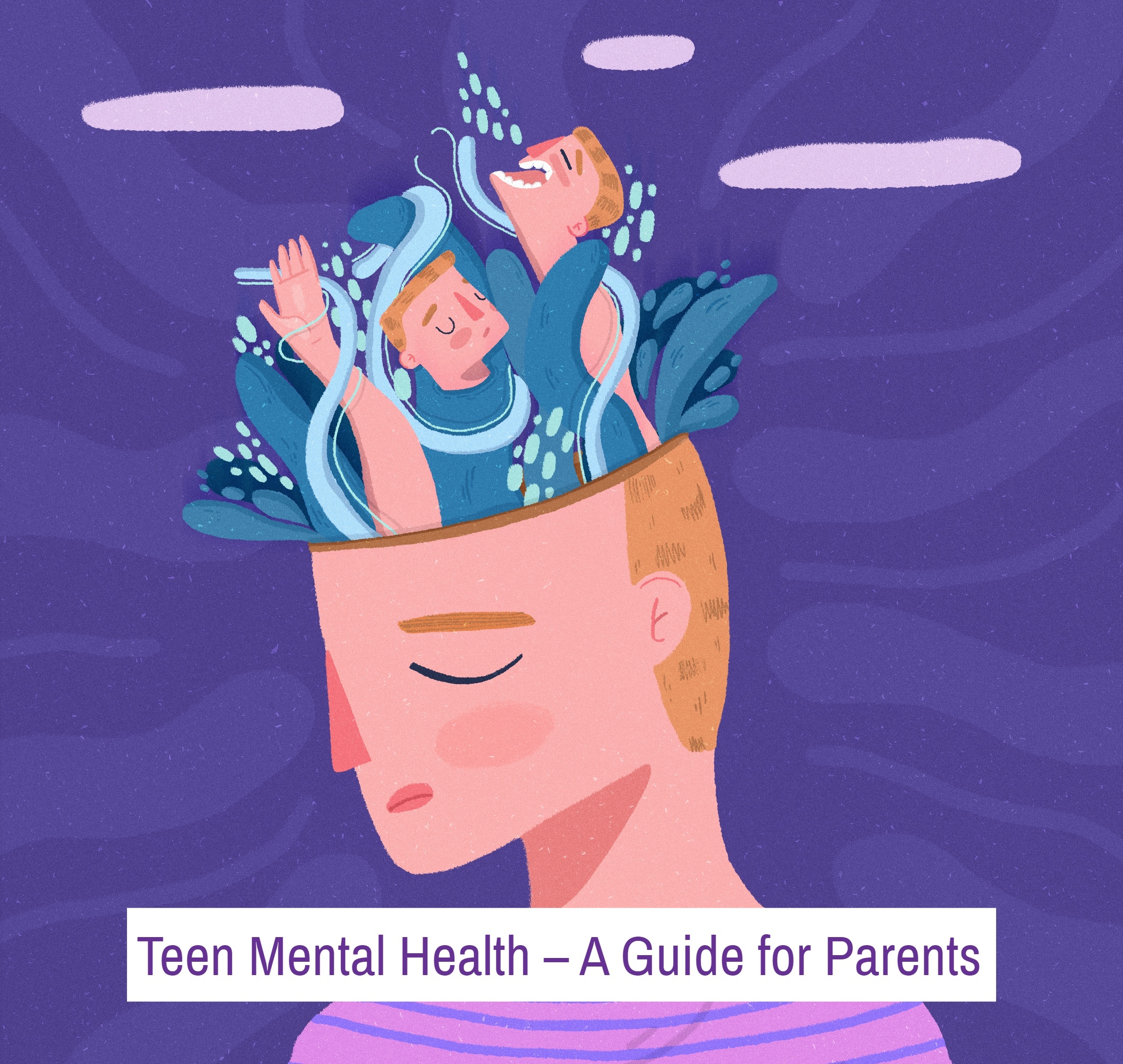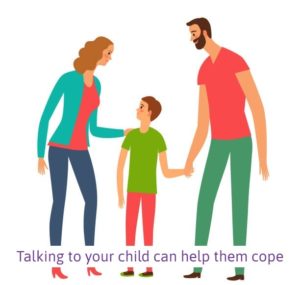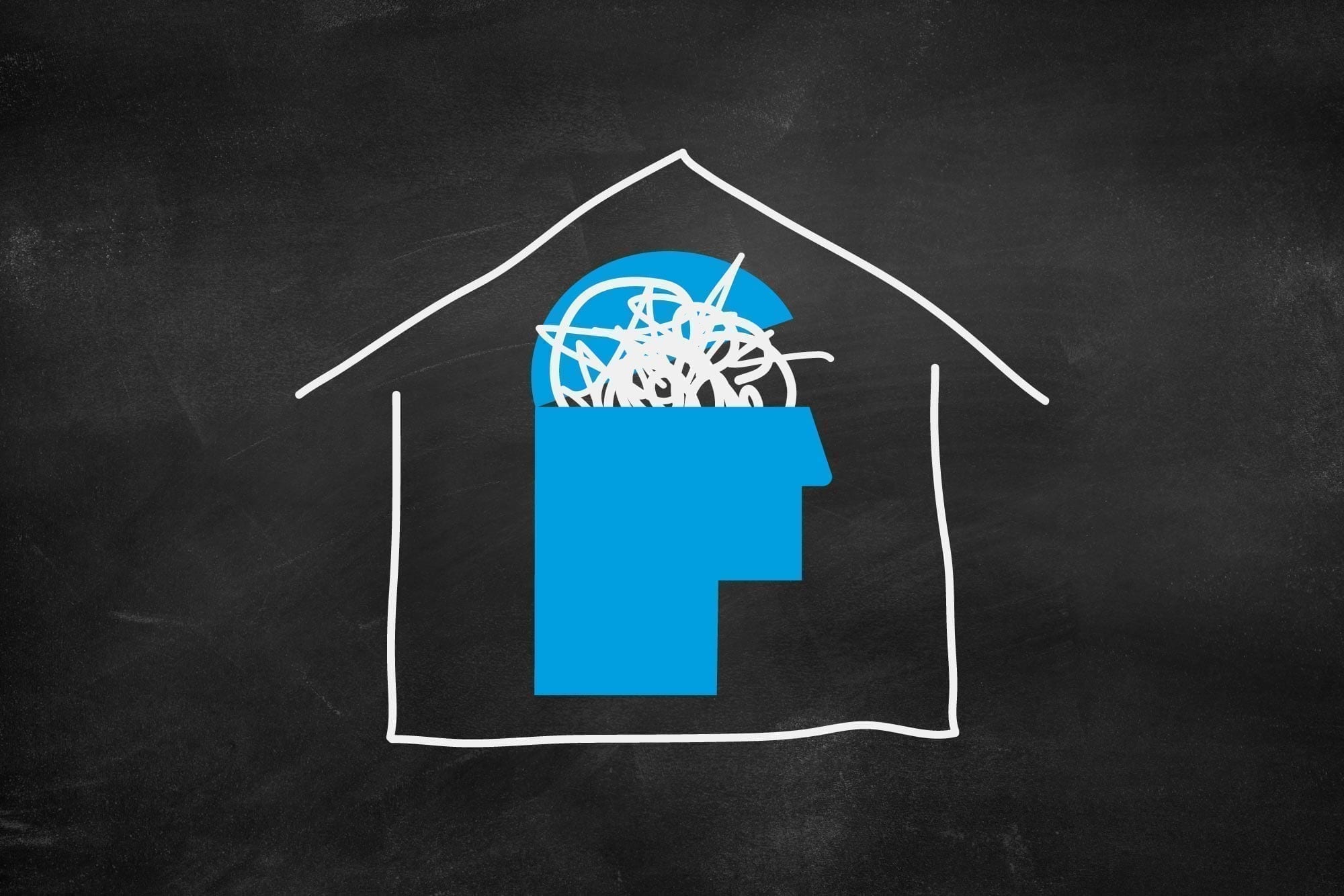Children
Teen Mental Health – A Helpful Guide for Parents

Your child’s teenage years are an exciting time, but they can be tricky too. With hormones going wild and bigger pressures at school, challenging mood swings are par for the course.
With mental ill-health on the rise though, you’ll want to keep watch on whether their moods are normal, or if they need a bit of help. Today one in five teens has a diagnosable mental health condition. And on average, people wait 8-10 years after first experiencing mental health problems before seeking help.
Of course, if problems are noticed and tackled when they first come up, you can help your child with the tools they need to be happy sooner rather than later. If you think that your teen needs some professional help, find out if they can see a school counsellor, or if it’s more serious, their GP can help you work out a plan of action together.
There are lots of common issues that you can help your teen with if you have the right tips. Keep reading for a break-down of some key pain-points, and what you can to do help as a parent.
Common mental health problems for teens, and what parents can do to help:
- Academic anxiety
- Peer pressure and cyberbullying
- Body image
- Stressed parents! (You need to look after yourself too)
Academic anxiety
With schools closed and teens all studying at home, many are afraid that they’ll be falling behind. On top of that, since exams were cancelled, thousands of kids feel in limbo as they wait for results to come through from the new grading system. Even just doing a few hours of studying a week during lockdown will help them keep on track with their core subjects, and a sense of progress will help fight off worry. Here are some more tips about managing academic anxiety in teens.
Ways to reduce academic anxiety in teens
- Work on their self-esteem. Remind them that you’re proud of them no matter what, and regularly praise them for little or big things they do well. On the issue of self-esteem, psychologist Dr Kate Jenkins says, “Low self-esteem can be extremely damaging long term. If children develop core beliefs such as “I’m not good enough” or “even if I try I don’t succeed, so what’s the point?” this can lead to significant problems in the future.”
- Talk to their teachers. If they’re behind in any subjects or finding particular areas difficult, this can have a negative impact on their confidence and cause anxiety. Once you identify where it is they’re struggling through – whether with the quantity or the nature of the work – together you can find specific ways to tackle it. This could be in the form of after-school clubs, extra support or studying with a friend so they can help each other out.
- Equip them with coping mechanisms personalised for them. If they feel really anxious when they sit down to do some homework, things like meditative breathing, or playing some calming music can help them get in the right headspace. If the organisation is an issue (as it is with lots of teens), writing out lists of what they need to do when, and keeping a revision timetable on their desk can help make lots of schoolwork seem less daunting. A one-to-one tutor can be a really effective way to give your teen the extra support they need. Lessons are all tailored to their learning style, and they can target issues like confidence and organisation.
- Make your home a study-friendly environment. If they have a desk space in a quiet corner of the house, it’ll make it easier for them to sit down and study when they need to.
- Make sure they get enough sleep each night. Texting their mates into the night or tossing and turning with anxiety can have a knock-on effect on how well they deal with challenges day-to-day.
- Make time for fun. Even with important exams coming up, giving your teen time to enjoy downtime will help them stay relaxed and keep a balanced lifestyle. It’s important for teens to have a sense of independence – if too much pressure is put on them to study and not have fun, teens can often rebel by not studying at all.

Parents communicating with children/teens can help them share their difficulties
Peer pressure & cyberbullying
Another big problem for teens today is negative peer pressure and forms of bullying online – it affects over 1 million young people every year.
How to find out if your child is being cyberbullied, and how to help:
- Keep communication open. If they feel they can tell you things, it’s much easier to find the source of any problems.
- Ask them how they feel when they’re socialising online. If they feel anxious, angry, scared or worried, see if they can open up about the root of these feelings, and talk about how they can stop it from happening.
- Ask them what they think is normal behaviour online, and have a discussion about it. They might not realise that some behaviour is harmful, or that they shouldn’t be made to feel certain ways.
If what they’re seeing online is having a negative impact on their mental health, help them change what they see. - As well as what they see online. Reducing the amount of time your teen spends in front of a screen each day can also have a positive impact.
Body image
As teens’ bodies change and grow, the most normal thing in the world is for them to feel a bit awkward or insecure about how they look. In the age of Instagram influencers and selfies though, it’s increasingly common for teens – both girls and boys – to become obsessed with their body image in a negative way.
If your teen follows influencers who post images that brag about their bodies, it can be helpful to remind them of what’s normal and what isn’t. If they can make the choice to unfollow accounts that make them feel bad about themselves, they’ll be developing a more resilient approach to social media and their own mental health.
Stressed parents!
Parenting can be stressful, especially if you’re worried about your child. You’ll be in the best place to help them if you also take care of your own mental and physical health. It’s especially hard as a busy parent to leave time in the day for yourself, but as little as 20 minutes of “me time” each day can leave you calmer and more able to help everyone else.


































